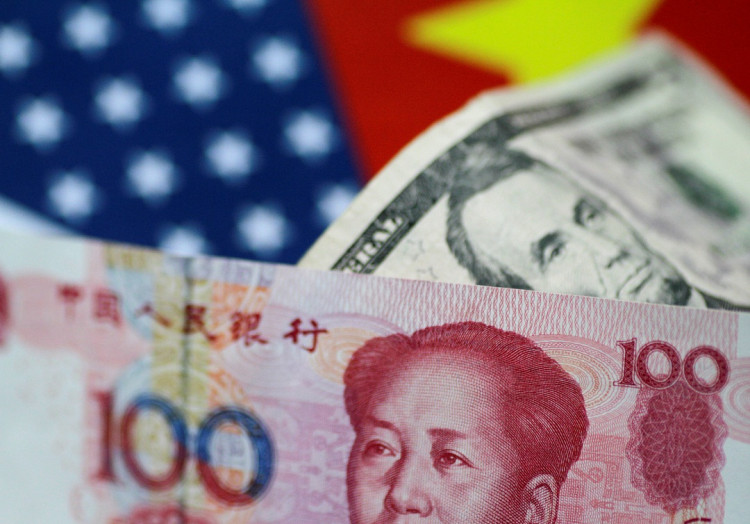Several finances and currency experts are expecting the Chinese government to focus on policy accommodation as it seeks ways to further stabilize the yuan and help curb the impact of a slowing economy.
In an interview with CNBC's Squawk Box on Friday, Goldman Sachs co-head of Global Foreign-Exchange Rates and Emerging Markets Strategy, Zach Pandl said Chinese policymakers are using the yuan to resolve its economic issues.
The panel added that he believes Beijing will keep on focusing on working with the yuan, noting that the bank is expecting "a rise back to 7.20 versus the dollar" sometime within the coming month.
The Goldman Sachs forecast came following earlier predictions that the Chinese government will work on stabilizing the yuan as a means of supporting domestic economic growth.
Another point of talks between currency analysts is whether the government will allow the Chinese yuan to weaken or strengthen. For most experts, Beijing will not allow the yuan to strengthen too much but will also work to keep the currency from weakening against the dollar.
The Chinese economy grew by six percent during the third quarter of this year. It was the slowest figure yet since 1992 when the government started posting expansion data and forecasts for the coming quarter.
China isn't the only country that has been slowing down over the past years. The global economy has also seen weakening growth factors, as impacted by trade wars and slower consumption levels.
On the other hand, some analysts believe China has what it takes to curb the dramatic effects of a slowing global economy. Aside from working with the Chinese yuan, the government has also implemented reforms in the form of rate and tax cuts.
In an op-ed for the South China Morning Post, veteran China affairs columnist Cary Huang noted that what happens next in the Chinese economy may depend heavily on how the government moves to resolve current issues linked to future economic progress.
Huang pointed out that China should further open up the market to foreign investors as well as move to revive market reforms that were stalled amid trade tensions with the United States.
Economists have been watching China's every move since it started implementing reforms for domestic markets. Last week, the government passed a law that will see an improvement in the business environment for foreign brands and companies.
A draft copy of the bill was sent to the White House before it was passed. Ning Jizhe, a member of the negotiating team for Beijing, revealed that the U.S. provided a positive response to the bill, which encouraged its passing into law.
The new law is set to take effect on January 1 and should allow more transparency and fair business for foreign firms and investors.





